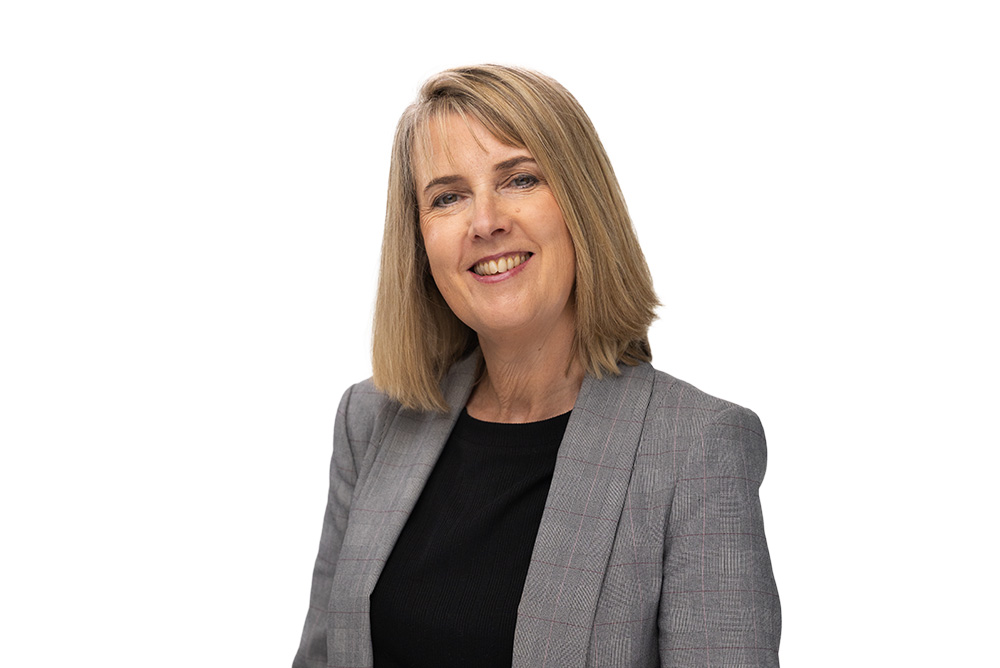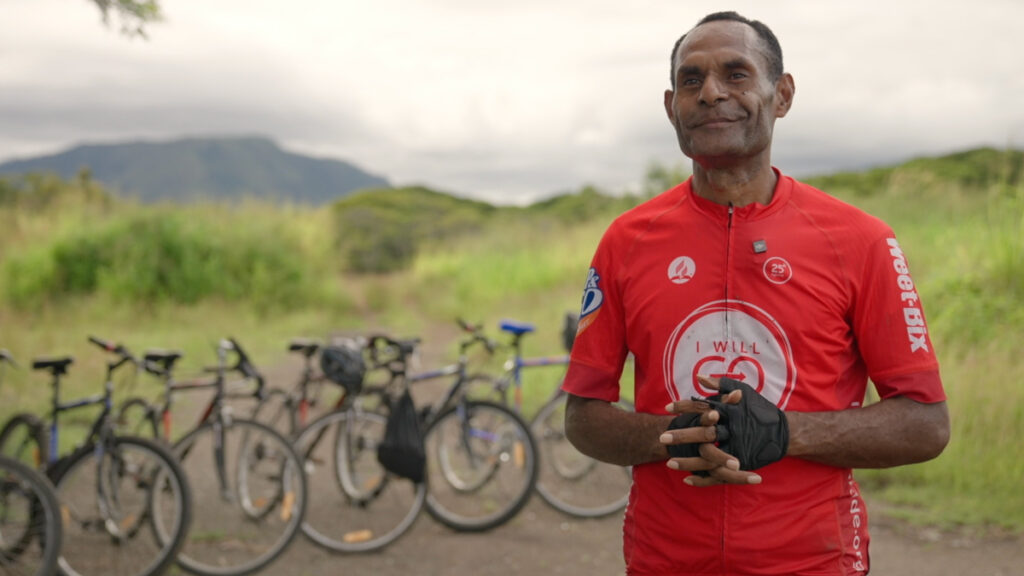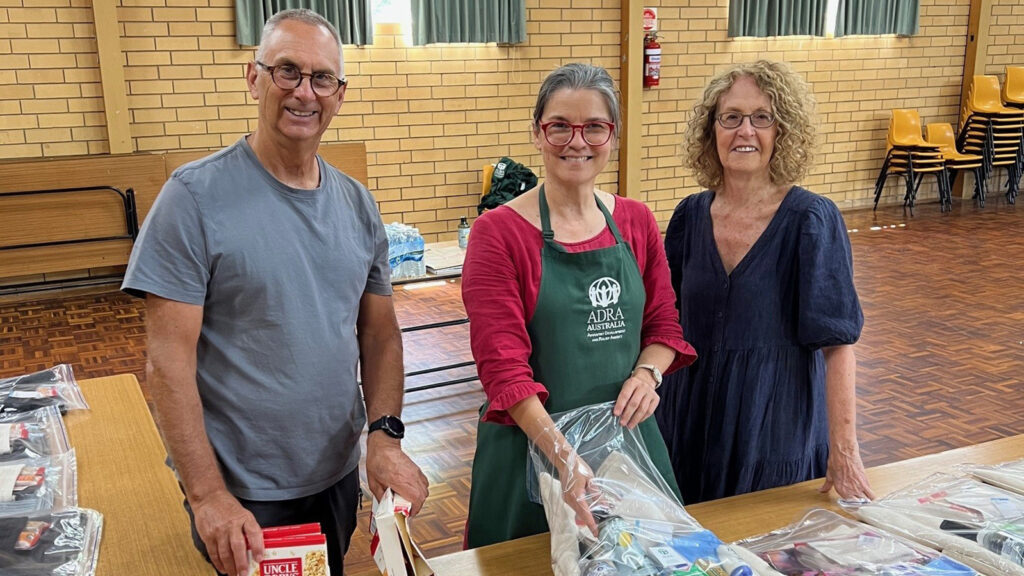The health message of the Seventh-day Adventist Church—the “right arm” of the gospel—is getting a much-needed booster shot as part of an innovative new strategy designed to meet the needs of communities throughout the South Pacific Division (SPD).
The Comprehensive Health Strategy (CHS) is aimed at inspiring church members to embrace and share the Adventist health message using technology within the digital media space to connect, engage and interact with their communities.
“Our aim is to take the Adventist health message given to us 160 years ago and put it into a 21st century context, delivered in a fresh and appealing way,” SPD health strategy consultant Geraldine Przybylko said.
“We believe that the message we were given then by God is more relevant now than ever before with non-communicable diseases being the leading cause of death across Australia, New Zealand and the South Pacific. Everyone knows someone who is battling with cancer, diabetes or heart disease,” said SPD Health specialist Chester Kuma.
CHS is not only aimed at improving the health of non-Adventists—it is also about preparing a movement for God’s mission, inspiring Church leaders and members to give greater attention to their own health and wellness so they can be their best for God’s service.

“Despite the Church’s proud history in the area of health, indicators are showing that we are declining in this space,” Mrs Przybylko said.
“As a Church we used to have an edge when it came to health, now statistics show that we are facing the same health issues as the rest of the community.
“CHS has two key aspects. Firstly, it is a grassroots movement inspiring small bands of workers to come together to promote the wholistic health message at a local destination, whether that be a local church, a clinic, a café, a school or an Adventist Development and Relief Agency (ADRA) office. It’s about creating local centres of influence right across the South Pacific and equipping these destinations with evidence-based resources.
“Secondly, it involves our institutions—SPD, Sanitarium Health and Wellbeing, Sydney Adventist Hospital, Avondale College of Higher Education, Australasian Research Institute, Adventist Media and ADRA—collaborating together, leveraging our strengths in a unified health strategy. So in time, when people think about health, they think about our Church,” Mrs Przybylko said.
“We are making a concerted effort to be a big player in this space and it’s great to see the support from Church administration, institutional leaders and our members to make this happen, showing us that God is truly leading our plans.”
The strategy draws on the input of experts such as Dr Darren Morton, senior lecturer in health and physical education at Avondale College, and Dr Ross Grant, CEO of the Australasian Research Institute at Sydney Adventist Hospital. While meeting the needs of the community, CHS will also help to position the Church as a leader in lifestyle medicine—a credible source of resources, experts and initiatives in wellness.
John 10:10 underpins the whole strategy: “. . . I have come that they might have life, and that they might have it more abundantly.”
“One of our objectives is to champion Christ’s method of health evangelism,” Mrs Przybylko said. “As we meet the needs of the community, build genuine relationships and help people live more abundantly, we will also have the opportunity to introduce the community to a loving Saviour.”
The Sabbath offering on May 20 will go towards projects developed as part of the SPD’s Comprehensive Health Strategy.
Big projects
There are a number of big projects being developed as part of the Comprehensive Health Strategy, including a 10-part innovative and interactive online video series, known as the Live More Project.
This series, featuring Dr Darren Morton, has been created in response to the growing number of people experiencing stress and anxiety in the community. It literally encourages them to live more.
“In the latest survey conducted by the Australian Psychological Society of National Stress and Wellbeing, anxiety symptoms were the highest they have ever been. One in 10 adults in Australia are now on anti-depressants,” Dr Morton said.
“This is an area that we have not dealt with before as a Church but there’s a great need in the community, and the Adventist health message speaks to this issue. For a long time we have known that our health message is good for our bodies, but the latest science shows that it is also exceptionally good for our brains.” [pullquote]
Results from a number of pilot groups who have completed the Live More Project show that the participants had improvements in vitality, mental health and stress levels.
“Because this is a big community need, this initiative will help us to connect and build relationships with people, and in the process we can find out about their other needs, providing a pathway to community activities such as cooking classes, walking meet-ups, health and wellness courses such as the Complete Health Improvement Program (CHIP) and Forgive to Live,” Dr Morton said.
In other initiatives, CHS is creating a Lifestyle Medicine digital platform to provide doctors with a tool to connect and engage with other health professionals and provide a central repository of our health message in a contemporary and relevant way for the community.
Every union in the South Pacific will also be running health expos as a way of connecting with their communities. Down the track it’s hoped that each union will establish wellness and training hubs.
“Let’s be part of this God-given vision and make an impact in the community,” Dr Morton said.
Prior to the official launch of the Live More Project in 2018, there will be an opportunity to be part of an “advanced screening” later this year. Further details will be announced in an upcoming edition of Adventist Record.







